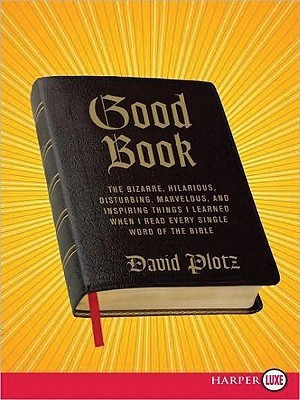What do you think?
Rate this book


496 pages, Paperback
First published March 1, 2009
This chapter is like the bad parts of Portrait of a Lady, Madame Bovary, and Married with Children all rolled up into a ball of rage. It's the first story to correctly understand that the psychological relationship between God and His people is not parent and child, but spouses.Returning to the question of why God would act like this, Plotz mentions the usual answer that "God acts in mysterious ways." But, he points out that we were born as rational beings. If God made us, giving us the tools to think, then we must examine God with "rational and moral inquiry. And He fails that examination."